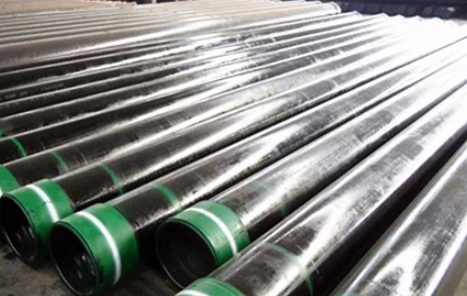
What is a Steel Casing Pipe Used for?
The definition of steel casing pipe
Steel casing pipe, also known as encasement pipe, is most commonly used in underground construction to protect utility lines of various types from getting damaged. Steel casing pipe is used in different types of horizontal underground boring, where the pipe is jacked into an augered hole in segments and then connected together by welding or by threaded and coupled ends, or other proprietary pipe connectors such as interference-fit interlocking push-on joints. Unlike oil pipes and drill pipes, it cannot be reused and is a one-time consumable material.
Key features of steel casing pipe
Strength and Durability: Steel casing pipes are strong and durable, able to withstand significant external pressure and environmental stresses.
Corrosion Resistance: Depending on the application, steel casing pipes may be coated or made from materials designed to resist corrosion, ensuring long-term performance in harsh environments.
Customizable Sizes: They come in various diameters, wall thicknesses, and lengths to suit different project requirements.
Sealing and Joint Options: Various methods, such as welding, threading, or using coupling sleeves, can be used to join steel casing pipes to ensure a secure and leak-proof connection.

The common application of steel casing pipe
The steel casing pipe protects one or more different types of utilities such as water pipes, gas pipes, power cables, fiber optic cables, etc. The utility lines that are run through the steel casing pipe are most commonly mounted and spaced within the steel casing pipe by using "casing spacers" that are made of various materials, including stainless steel or carbon steel and the more economical plastic versions.
Well Drilling
1. Oil and Gas Wells: Steel casing pipes are used to line the drilled wellbore in oil and gas wells. They help prevent the well from collapsing and isolate different underground layers to avoid contamination of resources.
2. Water Wells: In water wells, the casing prevents soil and contaminants from entering the well while also protecting the water source from contamination.
Construction:
1. Foundation Piles: Steel casing pipes are often used as foundation piles in construction projects, providing structural support for buildings, bridges, and other large structures.
2. Boreholes: In construction, steel casing pipes are used to stabilize boreholes during drilling for various purposes, including tunnels and utility installations.
Transportation:
Utility Conduits: Steel casing pipes can be used to protect utility lines, such as electrical cables, fiber optics, and pipelines, as they pass through challenging environments or under roads and rivers.
Read more: Steel Casing Pipe VS. Tubing


